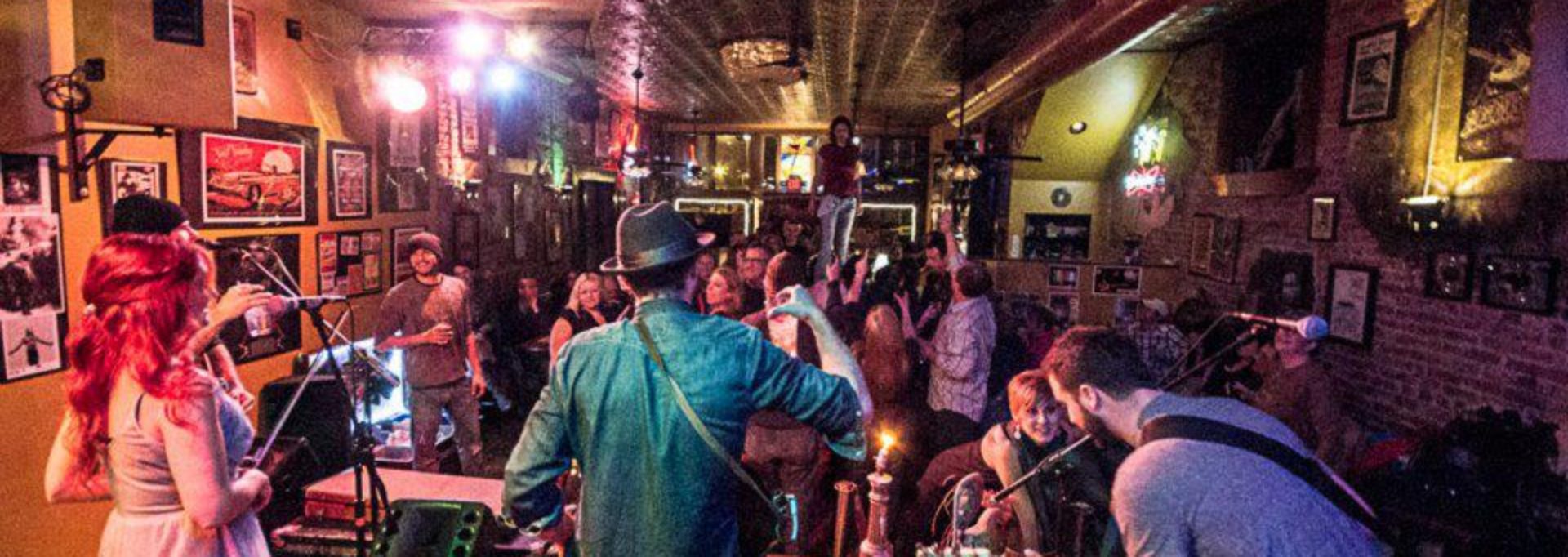Noah Earle {returns} to The Mission!
Take a listen!!
Noah Earle’s website
CD – This is the Jubilee
CD – Six Ways to Sunday


The jubilee is a season for celebration, an occasion for the freeing of slaves, or a song about deliverance from tribulation. It’s a time to memorialize the mixed bag of events that led to the present, looking toward a future that holds no small measure of promise. It’s precisely this spirit of hopeful revelry that permeates the tone of Noah Earle’s newest release, This is the Jubilee, available April 13th on Mayapple Records.
“My parents always said I was born smiling,” says Earle, as he demonstrates that very expression. Despite this reputed natural sunniness, Earle has been known to delve into the dark side of human nature and experience. Both of Earle’s previous albums, Six Ways to Sunday (self-released, 2004) and Postcards from Home (Mayapple Records, 2007) found him digging up the roots of his family’s musical traditions, along with the detritus of human frailty and hardship. Kelly Knauer of Time Life Books likens the songs on Postcards to “an MRI scan of a troubled brain, or a seismograph of a really bad day in Mr. Richter’s world.” “As a songwriter,” says Knauer, “Earle is a brilliant documentarian, a Ken Burns of the ordinary, a chronicler of American life who turns his unrelenting gaze on small conflicts rather than epic battles.” Jubilee, by contrast, finds Noah using his own voice to express a love of life that is contagious to the listener, while avoiding heavy-handed sentimentality and without ignoring the gritty reality that lurks in the shadows.
Indeed, This is the Jubilee stops short of heralding a golden era in which all wrongs are righted and past wounds forgotten. In fact, Earle freely explores such themes as love and loss, religious intolerance, and the end of the world in this collection of songs. Its unmistakable message, however, is that life is worth living despite its vicissitudes. The titular jubilee is not only a proclamation of this fact, but of Earle’s having come into his own as a songwriter and musician. “It’s strange…I stand by my other records and music I’ve made in the past as having been sincere and authentically me, but in some ways I feel like I’m just now finding my own direction,” he says, “and it’s really about time.”
Earle was born in Topeka, Kansas, “a good place to dig potatoes.” Surrounded by a musical family, he absorbed various strains of influence. His musical involvement began in early childhood when he would listen to the traditional country and country-gospel music that his family would play and sing at their gatherings. When asked about this period, Earle says “I was too shy to sit in the circle with the grown-ups, so I’d hang out in the corner and follow along quietly with my little nylon-stringed mariachi guitar.” Between the ages of about 5 and 18 he underwent classical training for piano, voice and violin, and was also exposed to blues and jazz by his dad and another uncle, both of whom performed in a number of bands. By the age of 7 or 8, he had decided that he wanted to write songs, like his uncle and grandfather.
“I really value the Midwestern musical roots that my family gave me as well as the music I discovered on my own” Earle observes, “but I guess the challenge for any songwriter is forging something original that’s still solidly rooted and pays due homage to one’s forbears. That was my intention with Jubilee…I wanted the earnest joy and clarity that I feel at this time in my life, musically and otherwise, to come through in the music without thumbing my nose or flying any flags.”
This ethic is also reflected in the album’s production, for which Earle decided to take the reins himself. The instrumentation was recorded in 6 different places, with varying levels of input from the songwriter. “I wanted so many people to be a part of this record who I could never have gotten into one room,” he says, “and thanks to the wonders of technology and a few good ears, we were able to get them all on there and still make it sound human.”
For the painstaking task of editing and mixing tracks from so many locations into a cohesive whole, Noah called upon veteran recording engineer and central Missouri musical icon Pete Szkolka. “Pete and I spent so many hours together hammering this thing into shape, and my little boy was there for every bit of it, sleeping through endless playbacks or crawling around and trying to pull on all the cables attached to the soundboard. In short, he was indispensable to the whole process,” jokes Earle.
Once the editing and mixing were done, Noah sent the tracks off to Brad Sarno in St. Louis, MO, who has a solid regional reputation for the warmth and immediacy of his analog masters. “We could have tweaked the mixes for another year and I wouldn’t have been any happier with them, besides getting tired of the songs themselves. Once everything was in Brad’s capable hands, I breathed a huge sigh of relief. I was really pleased with the job he did, and I consider it a good sign that these songs are still fun for me to play.”


